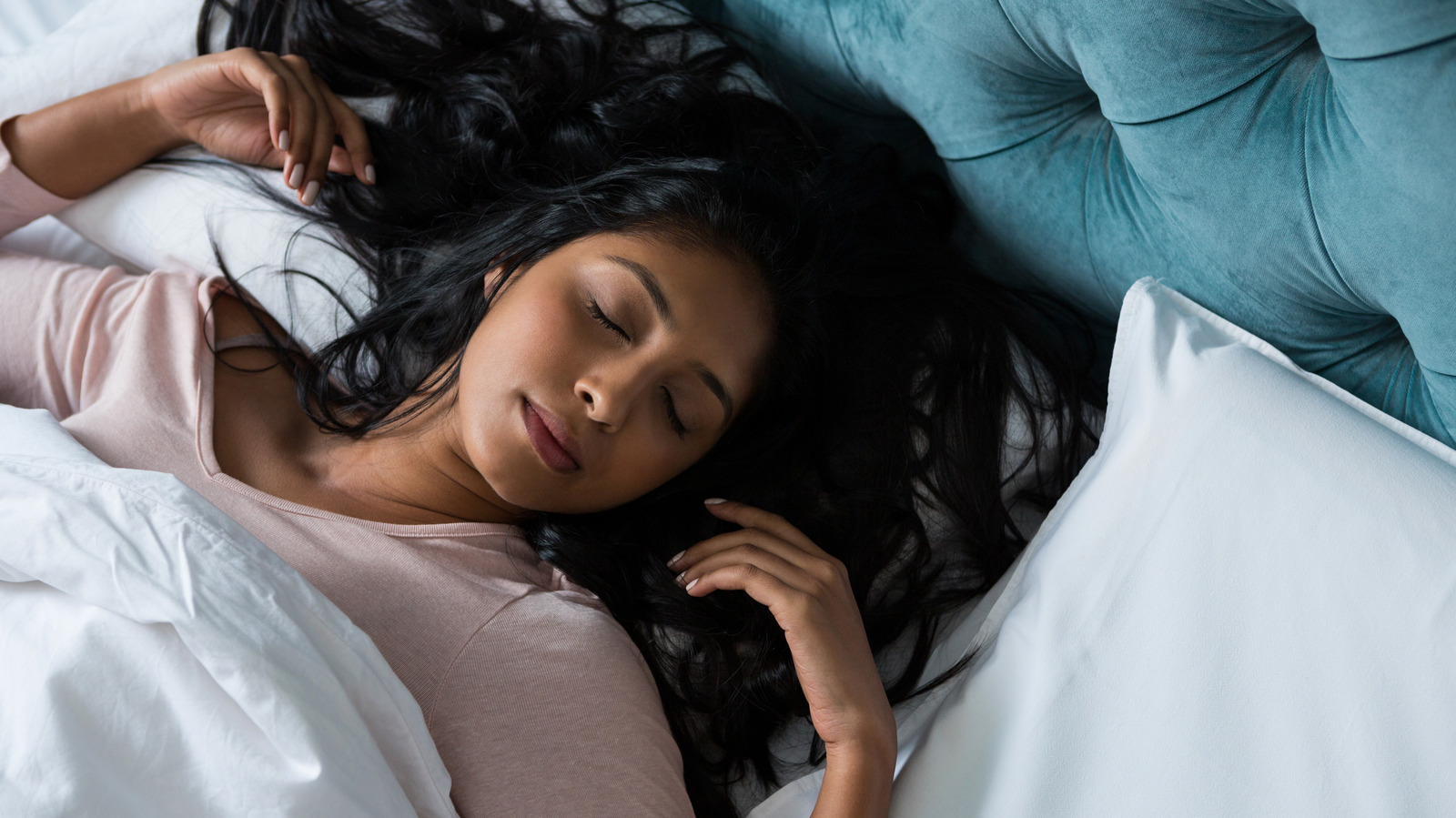
Avoid Sleeping On Your Back If You Have This Medical Condition – Health Digest

Obstructive sleep apnea syndrome (the most common type of sleep apnea) is a sleep-breathing disorder that results from a blockage in the upper respiratory airway, according to 2021 research published in the International Journal of Environmental Research and Public Health. This obstruction can interfere with one’s ability to breathe while sleeping and prompt numerous wakeups throughout the night. Those who meet the diagnostic criteria for obstructive sleep apnea experience over five of these episodes hourly for a duration of 10 seconds or more. As a result, patients often feel sleepy throughout the day.
For those with sleep apnea, gravity works against them when sleeping on their back. When fully reclined, the jaw and tongue naturally slide backward towards the throat, hindering respiration (per Mayo Clinic). This becomes a recipe for snoring and fragmented sleep. You may also find yourself waking up to a thoroughly disgruntled sleeping partner. Instead, experts explain that people with sleep apnea are better off sleeping on their side.


